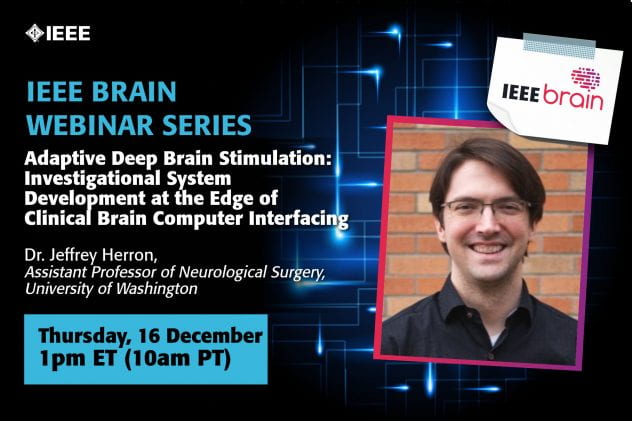
As part of the IEEE Brain Webinar Series I presented a talk on entitled “Adaptive Deep Brain Stimulation: Investigational System Development at the Edge of Clinical Brain Computer Interfacing” providing an overview on the development and latest research in the field of adaptive DBS.
The talk is freely available for the next month here, the talk abstract is below:
Over the last few decades, the use of deep brain stimulation (DBS) to improve the treatment of those with neurological movement disorders represents a critical success story in the development of invasive neurotechnology and the promise of brain-computer interfaces (BCI) to improve the lives of those suffering from incurable neurological disorders. In the last decade, investigational devices capable of recording and streaming neural activity from chronically implanted therapeutic electrodes has supercharged research into clinical applications of BCI, enabling in-human studies investigating the use of adaptive stimulation algorithms to further enhance therapeutic outcomes and improve future device performance. In this talk, Dr. Herron will review ongoing clinical research efforts in the field of adaptive DBS systems and algorithms. This will include an overview of DBS in current clinical practice, the development of bidirectional clinical-use research platforms, ongoing algorithm evaluation efforts, a discussion of current adoption barriers to be addressed in future work.
